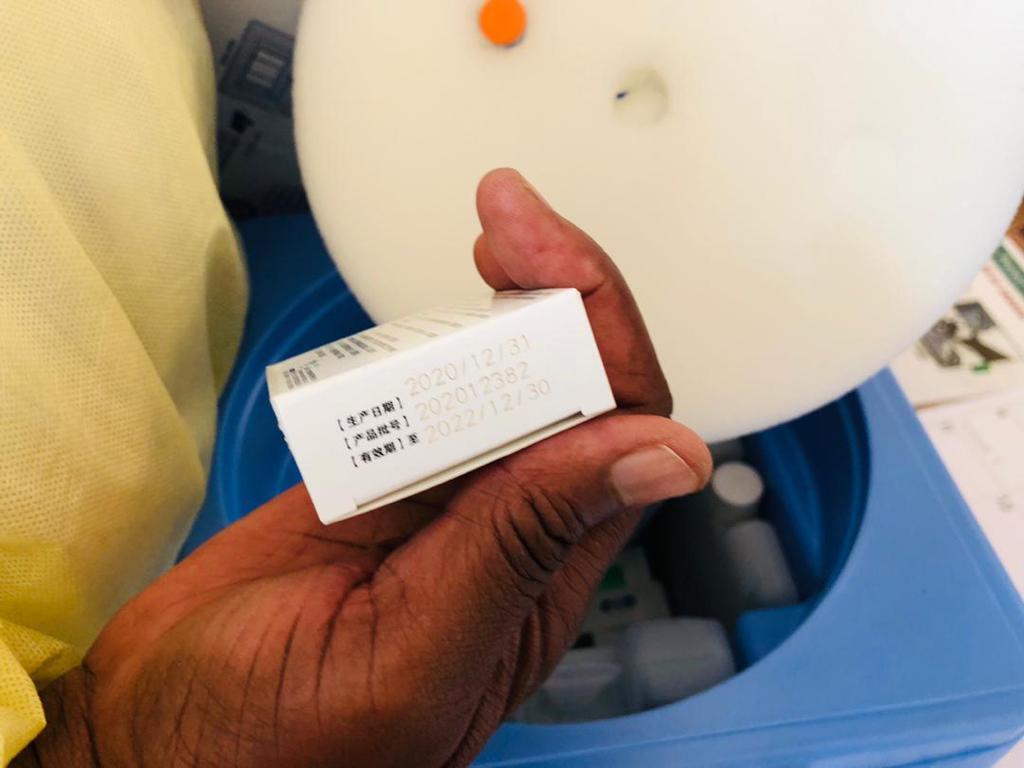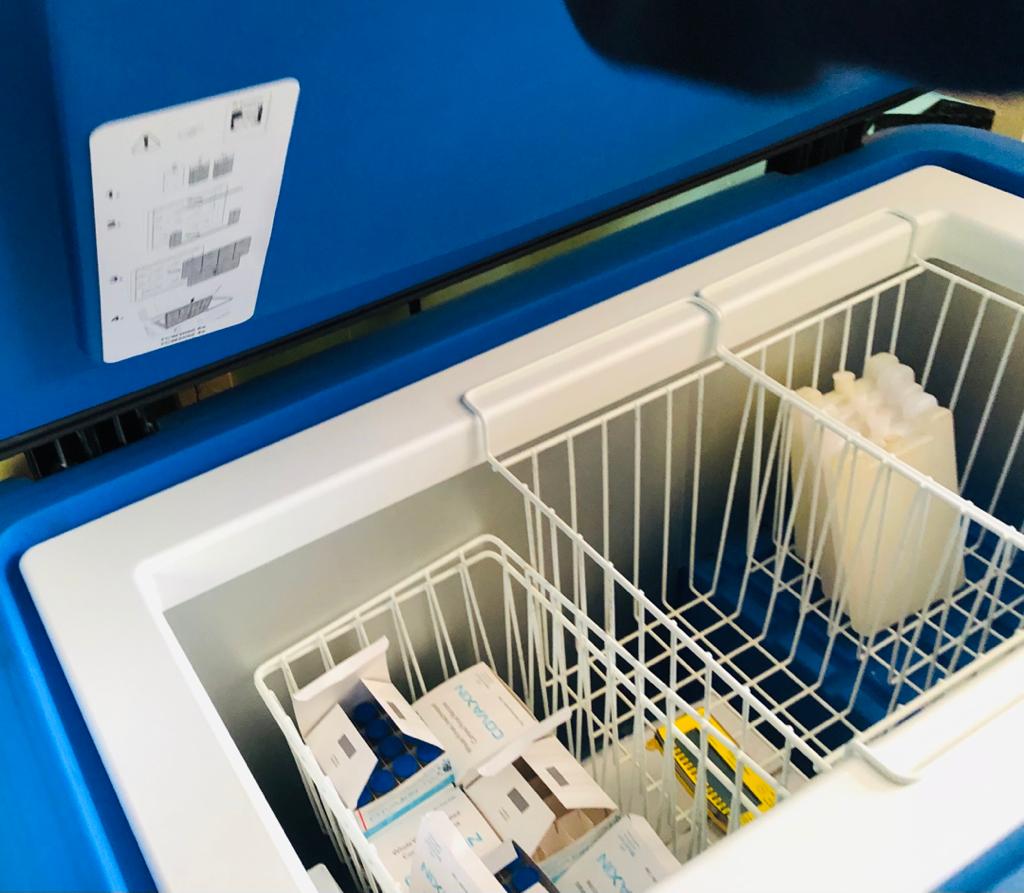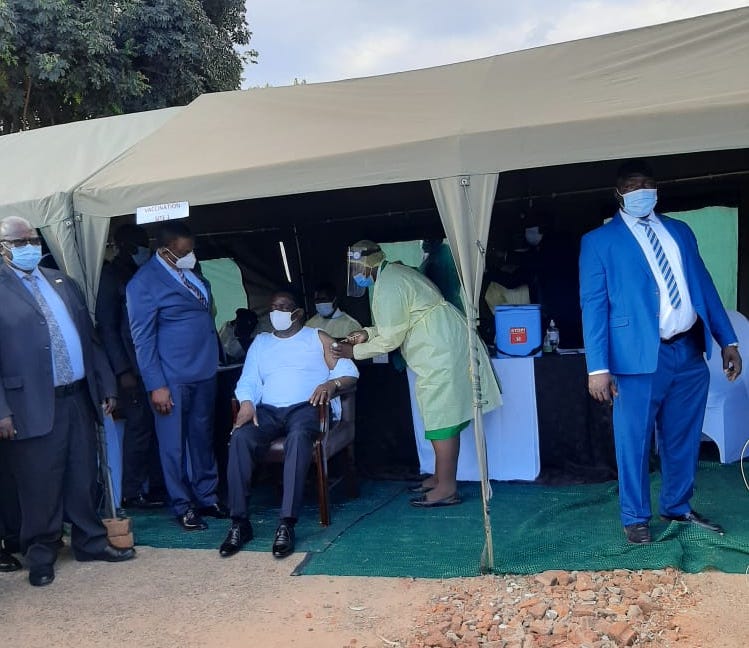BULAWAYO – Zimbabwe claims to be running a successful vaccination programme, but there have been reservations about the lack of accountability around the programme right from procurement of vaccines to how they are distributed.
Transparency International-Zimbabwe (TIZ) Advocacy Officer in Bulawayo, Njabulo Moyo, for instance has said while the government’s acknowledgement of the need to procure the vaccines is commendable, there are still gaps in terms of strategy.
“The distribution strategy is not clear,” he said.
“It has taken the government too long to fully advertise and inform the public around where they can be vaccinated. It has taken long to provide information as there is a lot of doubt from the public. You will realise that at the vaccination centres, there are no queues.
“It remains unclear if the government has any scientific technical know-how to roll out the vaccination project safely,” he said of Zimbabwe’s rollout under emergency rules.
“We saw what happened in South Africa where after procuring the vaccine, it was discovered that it was not good enough for the 501.YV variant,” Moyo said.
“In terms of strategy, we also needed strong assessment instead of saying that since China has donated 200,000 vaccines, then we just inject people. How certain are we that the vaccine is relevant to the Zimbabwean variant?”
The World Health Organisation (WHO) recently approved Sinopharm for emergency use, signaling its trust in the vaccine months after dozens of countries around the world started jabbing people.
Finance minister evasive on prices
It is also unclear how much the government has spent on the 1.9 million vaccine doses it has secured for the programme.
Asked about the amount of money Treasury was paying for the vaccines, Minister of Finance and Economic Development, Professor Mthuli Ncube, was evasive.
“Mainly it is Chinese vaccines,” he said in an interview.
“We have donations from India, Russia and we have put in additional orders for that. So the vaccination programme is going well. I think it was slow at the beginning but then picked up.
“You ask specifically about the prices and so forth,” Professor Ncube said.
“No, we never reveal prices for vaccines because these vary across suppliers, across doors. Our strategy is to have a budget, then we draw down from that budget. The budget we have set aside so far as the government is US$100 million. So it’s about ZWL$8.4 billion,” he said.
“I’ve also pronounced that we want to buy, with an intention of an average of a million vaccine doses a month. But of course supply can be, you know, up and down, because there’s serious demand for these vaccines globally. Look at what’s happening in India, in terms of the third wave that they’re going through.”

The finance minister said the government was drawing money from that US$100 million each time they purchased the vaccines.
“We’re not borrowing. It’s our own resources as a government that we’ve saved and this is from you, the citizens as taxpayers,” he said.
Professor Ncube said the government was using money “wisely” and the procurement system was “watertight.”
Zimbabwe authorised vaccines
Zimbabwe has so far authorised the use of four Covid-19 vaccines: China’s Sinopharm and Sinovac vaccines, Russia’s Sputnik V and Covaxin from India.
Sinopharm and Sinovac’s vaccines account for the bulk of shots given in Zimbabwe, which has so far inoculated over 500,000 as of May 7.
The southern African country aims to vaccinate 10 million people to reach the 60 percent “herd immunity” target but the prices of vaccines are so opaque that the government even maintains a monopoly over their procurement.
It is the only procurer of the vaccines and private companies give their money to the government to make the procurements.
The prices of other vaccines to compare the prices have never been discussed since the minister of finance has said this is necessary to prevent abuse of the system.
Professor Ncube declined to comment on local media reports that Zimbabwe was buying the Sinovac vaccine at US$10 a shot, and had spent U$12 million on vaccines received from the Chinese manufacturer so far.
The reports said the figure matched the price South Africa had paid for Johnson and Johnson vaccines.
That time Zimbabwe reported that it had purchased 1.2 million doses, as Sinovac has delivered 1,056 000 doses adding to consignment of 144,000 received earlier in March.
Zimbabwe had also received a donation of 400,000 Sinopharm and 35,000 doses of Covaxin.
No explanation for vaccine choices
The government had also not publicly justified or explained why they were buying Chinese vaccines mostly.
In an interview with CITE, Deputy Minister of Health and Child Care Dr John Mangwiro said in making that decision, the government followed science.
“When we chose this vaccine, we looked at how we are going to distribute it in relation to our infrastructure. Some of the vaccines need to be stored at temperatures of -75 to -80 degrees Celsius. If we were to start putting such infrastructure in place, we wouldn’t be done by now,” he said.
He revealed that the coldest temperature Zimbabwe could reach as a country is -30 degrees Celsius, which was the capacity of the Cold Storage Commission when it used to freeze meat.
“Now where will we store vaccines that require -75 degrees Celsius? It means we have to break all our refrigerators to restructure them and at that temperature, we don’t freeze water but gas. So we must start producing the gas. How long will it take for us to do that? These are some of the factors we look at because some people will ask for particular vaccines,” Dr Mangwiro said.

He added that the government was building the Covid-19 vaccination programme on the long standing children’s vaccination programmes.
“As a government we have a system of vaccinating people, our children for time immemorial and the vaccination programme moves from fraternal hospitals which are six,” he said.
“We also have provincial hospitals, district and rural hospitals. They all do vaccinations for children and they have storage facilities for vaccines. As a result, when we went buying vaccines, we went for those vaccines that can easily be stored in our environment of 2 to 8 degrees Celsius. We found that it was going to be easier to buy such vaccines and distribute them easily without reinventing infrastructure or putting it together afresh.”
Covid-19 variants on the continent
The World Health Organisation (WHO) Regional Office for Africa has recently said sequencing revealed there are over 14,000 variants of Covid-19 in the continent with the troublesome B1617 detected in India seen in Kenya, Uganda and now Zimbabwe.
Transparency would also mean that the government, which is too centralised, decentralises the distribution and allocation of vaccines.
Moyo said initially running the vaccination programme based on ‘donated vaccines’ was another false start for Zimbabwe.
“Once someone donates to you it becomes difficult to say, when you now have money, you can’t procure from them,” he said.
“I feel that was a Chinese bait for Zimbabwe. We took a bite of the bait which limits our alternatives in terms of selection of the manufacturers. There are possibilities emanating from the Look East policy and general China-Zimbabwe relations, you find that we have generally preferred Chinese products without asking questions.
“The Chinese are coming into Africa without conditionality, coming into Africa without a whole lot of scrutiny on how their business is conducted. The Chinese have become an easy avenue for accessing funds, material resources, and medical equipment because their policy towards Africa is that we engage with you and don’t want to interfere with your domestic affairs compared to the Washington consensus where western countries generally want to be concerned about human rights abuses.”
Promoting transparency
The President of the US-based Global Immunisation at the Sabin Vaccine Institute, Dr Bruce Gellin, agreed that citizens must be involved in the decision process on the vaccination roll out programmes.
“The bottom line is vaccines don’t deliver themselves but what is important is the vaccination programme, who runs it, how are decisions made, how much it costs and a whole lot of things,” he said.
“People must know the basis of which those decisions are made. Communication is very critical about what vaccines are recommended. Part of this is how well the science is communicated and how well people want to listen to it and believe it, making sure vaccines are available and that they are delivered to their population to achieve coverage rates and population health.”
The government of Zimbabwe insists that it is doing everything according to globally agreed scientific standards.

At the end of January this year, the Zimbabwe Lawyers for Human Rights (ZLHR) wrote to the Minister of Health and country’s vice president, Dr. Constantino Chiwenga, demanding details on the Covid-19 vaccine procurement and rollout plan for the country.
The human rights lawyers insisted this information was necessary for the public’s interest in public accountability and enforcement of citizens’ constitutional rights.
The Zimbabwe Human Rights Association (ZimRights) also filed an urgent chamber application seeking to compel the government to provide a National Deployment Vaccination Plan.
However, the matter was dismissed in February with the Harare High Court saying it lacked urgency.
That same February, ZimRights and the International Commission of Jurists (ICJ) of Africa called for the intervention of the African Commission on Human and Peoples Rights to urge the government to provide transparent plans on vaccine procurement, distribution and roll out.
This story was written and produced as part of a media skills development programme delivered by the Thomson Reuters Foundation. The content is the sole responsibility of the author and the publisher.

